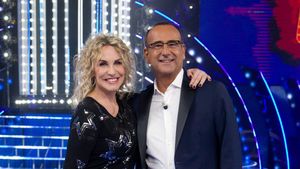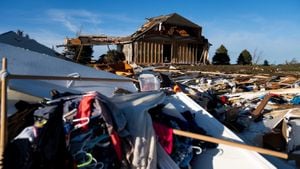The resignation of the Lebanese parliament speaker has triggered significant political ripples within the country, leaving many wondering about the future direction of the Lebanese political arena. This unexpected turn of events has spurred various responses from international actors, including Russia, which has taken the opportunity to reiterate its commitment to support Lebanon as it navigates through its post-conflict recovery.
On February 11, 2023, Alexander Rudakov, the Russian ambassador to Lebanon, assured Lebanese media of Russia's readiness to assist the country following the devastating impacts of the recent war with Israel. Rudakov expressed, "We do not see any serious obstacles to this. We have friendly policies toward official Beirut, and Russia is always ready to extend a helping hand to its friends, as is known. So if we receive such a request, we will be ready to look at it." This statement highlights Russia's eagerness to play a proactive role as Lebanon seeks to rebuild and recover.
Lebanon's political stability has been under strain, especially amid continuous Israeli violations of the ceasefire agreement. The resignation of the parliament speaker raises eyebrows about the country's internal dynamics and the potential for political realignments. It is within this tumultuous atmosphere, marked by insecurity and uncertainty, where international assistance becomes critically important.
Rudakov also made reference to Russia's historical contributions to Lebanon during previous conflicts, stating, "Thanks to the efforts of Russian military engineers, it became possible to quickly restore ground communications between neighboring regions of the country." This statement serves not only as a reminder of the past support offered by Russia but also as a plea for collaboration moving forward—something Lebanon desperately needs as it contemplates its political future and recovery strategy.
Since the conflict with Israel, Lebanon has faced myriad challenges, including infrastructure destruction and economic tumult. Russia’s previous assistance during the September 2006 conflict, where its military engineers constructed bridges totaling over 500 meters to restore connectivity, remains etched as one of the significant acts of aid. Such gestures have laid the foundation for potential future collaborations, making Rudakov's recent statements particularly timely.
Given the current challenges Lebanon faces, the prospect of receiving assistance and support from Russia could be invaluable. Amidst the increasing economic pressures, Russian assistance could provide not just financial aid but logistical support, known from past endeavors. The emphasis on cooperation reflects Moscow's intentions to solidify ties with Lebanon and position itself as key player within the region.
Further complicity arises from the internal factions within Lebanon as they assess the change brought on by the speaker's resignation. Each political faction has different views on international assistance, influenced by historical relations, ideologies, and foreign policy objectives. This has often led to tensions on how best to respond to crises, particularly those of economic and military nature.
Nonetheless, the call for unity among Lebanese factions cannot be overlooked. The nation has long oscillated between foreign influences, and any hope for stability now hinges on how effectively these internal divisions can be managed. How Lebanon moves forward with foreign assistance, particularly as it pertains to Russian offers, will doubtless shape its future.
Rudakov's comments seem to resonate well with various Lebanese stakeholders who understand the historical precedents of such aid. The willingness of Russia to become involved not only suggests Moscow's desire to have more influence within the region but also provides Lebanon with another avenue for potential recovery. This may pose as the beginning of new alliances or reinforce existing ones, depending on how this delicate process is navigated.
The need for aid has never been more pressing, considering Lebanon’s recent disputes with Israel and rising socio-economic challenges driven by years of instability. Whether this will translate to tangible help remains to be seen, as the country grapples with its political realities and the prospect of external dependency.
Overall, the resignation of Lebanon’s parliamentary speaker adds another layer of complexity in how regional and international actors, such as Russia, will engage with the country. With renewed pledges of support from Russia, Lebanon must now carefully evaluate not just the potential benefits of such cooperation but also the strategic ramifications entailed by foreign involvement.



